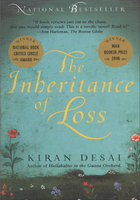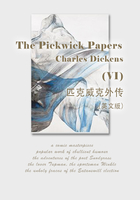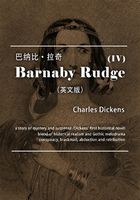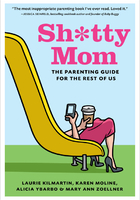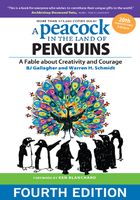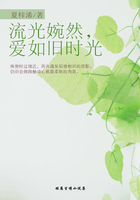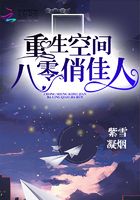Kissing on the Lips
THE FOLLOWING afternoon, Füsun and I reminisced again about our drive around the city on that holiday morning six years earlier, before giving ourselves over to kisses and lovemaking. As the linden-scented breeze rustled through the tulle curtains to lap against her honey-colored skin, I was driven to distraction by the way she clung to me with all her strength, as to a life raft, eyes tightly shut, and I could neither see nor reflect on the deeper meaning of what I was experiencing. Still I concluded that if I was to avoid sinking into the dangerous depths where guilt and suspicion serve only to induce the helplessness of love, I should seek out the company of other men.
On Saturday morning, after I'd been with Füsun three more times, my brother rang to invite me to the match that Fenerbah?e was to play that afternoon against Giresunspor; if Fenerbah?e won—as the oddsmakers expected—it would take the championship. So off we went to the ?n?nü Stadium, formerly known as the Dolmabah?e Stadium. Apart from its name, it pleased me to note, it was just the same as it had been twenty years ago. The only real difference was that, adopting European convention, they had tried to grow grass on the playing field. But as the seed had taken root only in the corners, the playing field resembled the head of a balding man with just a scattering of hair on the temples and the back. The more affluent spectators in the numbered stands did the same as they had done in the mid-1950s: Whenever the exhausted players approached the sidelines, especially the less glorious defensemen, they would shower them with abuse, rather as the Roman masters cursed gladiators from the tribunes ("Run, you gutless faggots!"); while from the open stands, the poor, the unemployed, and students echoed the angry curses in unison, hoping to make their voices heard, too. As the sports pages would confirm the next day, it was something of a rout, and when Fenerbah?e scored a goal, I jumped to my feet with the rest of the crowd. In this festive atmosphere, with men on the field and in the stands conjoined in ritual embrace and congratulation, in this sudden community I felt my guilt recede, my fear transform into pride. But during the quiet moments of the match, when all thirty thousand of us could hear a player kick the ball, I turned to look at Dolmabah?e Palace, and the Bosphorus glimmering behind the open stands, and as I watched a Soviet ship moving behind the palace, I thought of Füsun. I was profoundly moved that she, hardly knowing me, had yet chosen me, had so deliberately elected to give herself to me. Her long neck, the dip in her abdomen that was like no other, the blending of sincerity and suspicion in her eyes at the same instant, their melancholic honesty when they looked right into mine as we lay in bed, and our kisses, all played on my mind.
"You seem preoccupied. It's the engagement, I guess," said my brother.
"Yes."
"Are you very much in love?"
"Of course."
With a smile both compassionate and worldly-wise, my brother turned back to watch the ball in midfield. In his hand was a Turkish Marmara cigar—he had taken up this habit two years earlier, "just to be original," he said. The light wind blowing in from Leander's Tower ruffling the teams' great banners as well as the little red corner flags carried the stinging smoke right into my eyes, making them water just as the smoke from my father's cigarettes had done when I was a child.
"Marriage will do you good," said my brother, his eyes still on the ball. "You can have children right away. Don't wait too long and they can be friends with ours. Sibel is a woman with a lot of sense; she has her feet on the ground. While you sometimes get carried away with your ideas, she'll provide a good balance. I hope you don't wear out Sibel's patience the way you did with all those other girls? Hey, what's wrong with this ref? That was a foul!"
When Fenerbah?e scored its second goal, we all leapt up—"Goooal!"—and threw our arms around one another and kissed. When the match was over, we were joined by Kadri the Sieve, an army buddy of my father's, and a number of football-loving lawyers and businessmen. We walked up the hill with the shouting, chanting crowd and went into the Divan Hotel, where we talked football and politics over glasses of rak?. And my thoughts turned again to Füsun.
"Your mind is elsewhere, Kemal," said Kadri Bey. "I guess you don't like football as much as your brother."
"I do, but lately …"
"Kemal likes football very much, Kadri Bey," said my brother in a mocking tone. "It's just that people don't pass him many good balls."
"As a matter of fact I can give you the whole 1959 Fenerbah?e lineup from memory," I said. "?zcan, Nedim, Basri, Akgün, Naci, Avni, Mikro Mustafa, Can, Yuksel, Lefter, Ergun."
"Seracettin was in there, too," said Kadri the Sieve. "You forgot him."
"No, he never played on that team."
The discussion continued and as always in such situations, led to a wager, Kadri the Sieve betting that Seracettin had played on the 1959 team, and I betting that he hadn't. The loser would buy dinner for the entire group of rak? drinkers at the Divan.
As we walked back to Ni?anta??, I parted from the other men. Somewhere in the Merhamet Apartments was a box in which I had kept all the photographs of football players I had collected from the packs of chewing gum that they used to sell once upon a time. It was just the sort of item my mother would banish to the apartment. I knew that if I could find that box, with all those pictures of football players and film stars that my brother and I had collected, Kadri the Sieve would be buying dinner for everyone.
But as soon as I entered the apartment I understood that my real reason for coming again was to dwell on the hours spent there with Füsun. For a moment I looked at the unmade bed, the unemptied ashtrays at the head of the bed, and the unwashed teacups. My mother's accumulated old furniture, the boxes, the stopped clocks, the pots and pans, the linoleum covering the floor, the smell of dust and rust had already merged with the shadows in the room to create a little paradise of the spirit in which my mind could wander. It was getting very dark outside, but still I could hear the cries and curses of the boys playing football in the garden.
On that visit to the Merhamet Apartments, on May 10, 1975, I did indeed find the tin in which I had kept all the pictures of movie stars from Zambo, but it was empty. The pictures the museum visitor will view are ones I bought many years later from H?fz? Bey, during days whiled away conversing with shivering and miserable collectors in various crowded rooms. What's more, on reviewing my collection years later, I realized that during our visits to the bars frequented by film people—Ekrem Gü?lü (who'd played the prophet Abraham) among them—we had met quite a few of these actors. My story will revisit all these episodes, as will the exhibit. Even then I sensed this room mysterious with old objects and the joy of our kisses would be at the core of my imagination for the rest of my life.
Just as for most people in the world at the time, my first sight of two people kissing on the lips was at the cinema and I was thunderstruck. This was definitely something I'd want to do with a beautiful girl for the rest of my life. At the age of thirty, except for one or two chance encounters in America, I had still seen no couples kissing offscreen. It was not just when I was a child, though even then, the cinema seemed to be the place to go to watch other people kissing. The story was an excuse for the kissing. When Füsun kissed me, it seemed as if she was imitating the people she had seen kissing in films.
I would now like to say a few things about our kisses, though I have some anxieties about steering clear of trivialities and coarseness. I want to tell my story in a way that does justice to its serious points regarding sex and desire: Füsun's mouth tasted of powdered sugar, owing, I think, to the Zambo Chiclets she so liked. Kissing Füsun was no longer a provocation devised to test and to express our attraction for each other; it was something we did for the pleasure of it, and as we made love we were both amazed to discover love's true essence. It was not just our wet mouths and our tongues that were entwined but our respective memories. So whenever we kissed, I would kiss her first as she stood before me, then as she existed in my recollection. Afterward, I would open my eyes momentarily to kiss the image of her a moment ago and then one of more distant memory, until thoughts of other girls resembling her would commingle with both those memories, and I would kiss them, too, feeling all the more virile for having so many girls at once; from here it was a simple thing to kiss her next as if I were someone else, as the pleasure I took from her childish mouth, wide lips, and playful tongue stirred my confusion and fed ideas heretofore not considered ("This is a child," went one idea—"Yes, but a very womanly one," went another), and the pleasure grew to encompass all the various personae I adopted as I kissed her, and all the remembered Füsuns that were evoked when she kissed me. It was in these first long kisses, in our lovemaking's slow accumulation of particularity and ritual, that I had the first intimations of another way of knowing, another kind of happiness that opened a gate ever so slightly, suggesting a paradise few will ever know in this life. Our kisses delivered us beyond the pleasures of flesh and sexual bliss for what we sensed beyond the moment of the springtime afternoon was as great and wide as Time itself.
Could I be in love with her? The profound happiness I felt made me anxious. I was confused, my soul teetering between the danger of taking this joy too seriously and the crassness of taking it too lightly. That evening Osman came over with his wife, Berrin, and their children to my parents' place for supper. I remember that while we were eating, I kept thinking of Füsun, and our kisses.
The next day I went to the cinema alone at lunchtime. I had no particular wish to see a film, but I couldn't face eating in the usual little place in Pangalt? with Satsat's aging accountants and the kindhearted, plump secretaries who so enjoyed reminding me what a sweetie I had been as a child. I wanted to be alone. To indulge my thoughts of Füsun and our kisses, longing for two o'clock to come, while joking with my employees, playing the "humble friendly boss" and all the while eating, would have been too much to manage.
As I wandered through Osmanbey, down Cumhuriyet Avenue, gazing at the shop windows, I was drawn into a film by a poster advertising a Hitchcock week. This film too had a kissing scene with Grace Kelly. This cigarette I smoked during the five-minute intermission, this usher's flashlight, and this Alaska Frigo ice cream (which I display as a reminder to all housewives and lazy truants who ever attended a matinee) should imitate the desire and solitude I knew as a youth. I savored the coolness of the cinema after the heat of the spring day, the stale air heavy with mold, the handful of cineastes whispering excitedly, and I loved letting my mind wander as I gazed into the dark corners and the shadows at the edges of the thick velvet curtains; the knowledge that I would soon be seeing Füsun sent wave after wave of delight radiating through my body. After leaving the cinema, I walked through the higgledy-piggledy backstreets of Osmanbey, passing little clothes shops, coffeehouses, hardware stores, and laundries where they starched and ironed shirts, until I reached Te?vikiye Avenue and I remember telling myself as I headed toward our meeting place that this would have to be our last time.
First I would make an honest effort at teaching her mathematics. The way her hair tumbled onto the paper, the way her hand traveled across the table, the way she'd chew and chew a lead pencil, only to slip its eraser between her lips, as if sucking a nipple, the way her bare arm grazed my own from time to time—all this sent my head spinning, but I held myself in check. As she set out to balance an equation, Füsun's face would fill with pride, and all of a sudden she would forget her manners and blow a puff of smoke straight at the book (and sometimes straight into my face), and throwing me a look from the corner of her eye, as if to say, Did you notice how fast I worked that one out?, she managed to ruin the whole thing because of a simple addition mistake. Unable to find her answer in a, b, c, d, or e, she would turn sad, and then upset, and she would make up excuses, like, "It wasn't out of stupidity; it was carelessness!" So that she wouldn't make the same mistake again, I would arrogantly tell her that being careful was a part of being clever, and I would watch the tip of her pencil pecking like the beak of a sparrow as she pounced on a new problem; she would pull at her hair nervously as she simplified an equation with some skill, and I would follow her work anxiously, with the same impatience, the same rising agitation. Then suddenly we would start to kiss, kissing for a long time before we'd make love, and while we made love, we would feel the entire weight of lost virginity, shame, and guilt—this we sensed in each other's every movement. But I also saw in Füsun's eyes her pleasure in sex, her growing amazement at discovering delights that she'd wondered about for so long. She called to mind an adventurer of old who, after years of dreaming of a distant legendary continent, sets out across the seas, and who, having crossed oceans, suffered hardships, and shed blood, finally steps onto its shores, to meet each tree, each stone, each creature with awe and enchantment, drawing from the same elation to savor each flower she smelled, each fruit she put into her mouth, exploring each novelty with a cautious, bedazzled curiosity.
Leaving aside the man's tool, what interested Füsun most was not my body, nor was it the "male body" in general. It was her own form and her own pleasure that most occupied her. She needed my body, my arms, my fingers, my mouth, to find the pleasure spots and potentials of her body, her soft skin. Lacking experience, Füsun was sometimes shocked by the possibilities of what I was teaching her as her eyes turned inward with a lovely haziness, pleasure spreading through her veins to the back of her neck and her head, like a gradually intensifying shiver, and she would follow pleasure's flow with awe, sometimes letting out a blissful cry, then once more await my assistance.
"Do that again, please? Do it like that again!" she whispered now and again.
I was very happy. But this was not an elation I could weigh in my mind and understand. It was something that I felt on the nape of my neck when I answered the phone, or at the tip of my spine when running up the stairs, or in my nipples when ordering food at a Taksim restaurant with Sibel, to whom I was to become formally engaged in four weeks' time. I would carry this feeling around with me all day, like a scent on my skin, sometimes forgetting it was Füsun who had given it to me, as when, on several occasions, I was in my office after hours, hurriedly making love to Sibel, and it seemed to me I was in the grace of one great, all-consuming beatitude.

